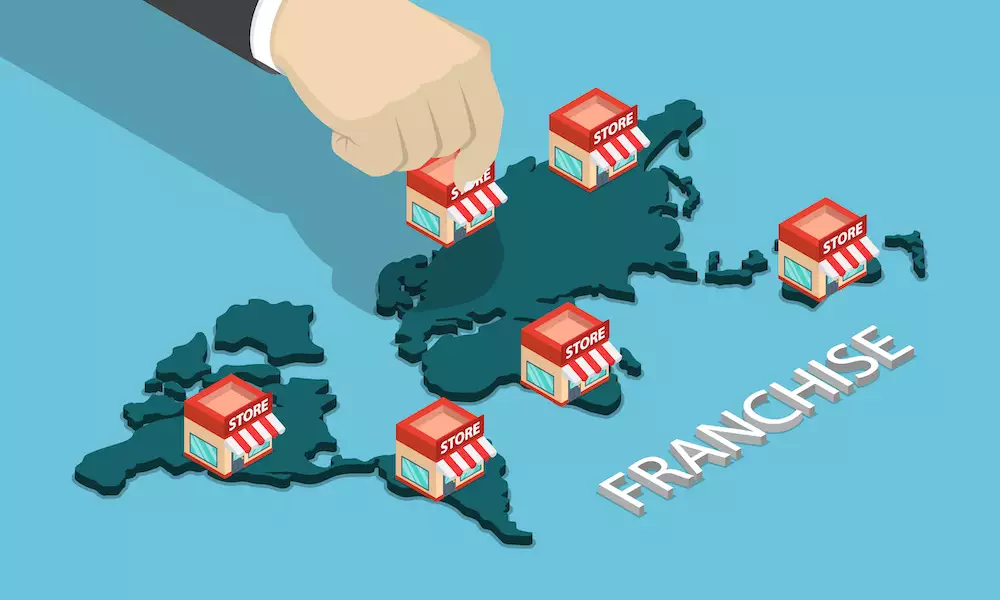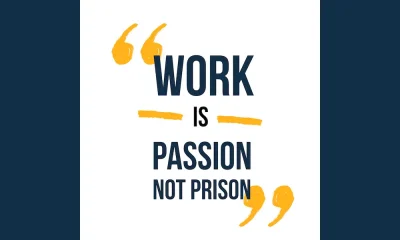Legal
5 Must Know Tips for Buying a Franchise

Purchasing a franchise is a popular way to start a new business.
Franchising is a great way to expand a business, so when it’s done well, both the franchisor and the franchisees can profit from being in business together.
What are some of the benefits of buying a franchise?
Starting a business is fraught with challenges that buying a franchise doesn’t have, including a lack of a brand, a recognized offering and a proven track record.
Buying a franchise can offer several benefits in addition to an established brand and offering, including:
Proven Business Model
When you create a startup, you start from ground zero without a business plan.
Franchises typically operate under a well-known brand, which can save time and resources that would otherwise be spent on building brand awareness from scratch. Consumers are often more comfortable with and trust established brands.
Additionally, they have already developed and tested a successful business model. This reduces the risk of failure compared to starting an independent business, as you’re working with a proven system that has been successful in other locations.
With a proven business model, financing is straightforward. Franchises often have an easier time securing funding because lenders perceive them as less risky. Banks and financial institutions may be more willing to lend to franchisees because of the proven success of the franchise model.
Resources
Funds are tight in startups, so having access to an extensive pool of resources saves you time and money. Furthermore, franchisees often benefit from the collective buying power of the franchise network. This can lead to lower costs for supplies, equipment, and other resources, enhancing the overall profitability of the business.
Securing staff is more accessible when the employees recognize the brand and its reputation. Plus, with a franchise, you’ve also got a level of security due to the established systems and support the franchisor provides. This reduces risks such as cyberattacks when leveraging the franchise’s access to security tools and processes.
What to look out for with a franchise
There are some challenges with a franchise. You need to choose the right one for you and get the right staff who share the same values as the brand.
As franchises operate in territories, conflicts may arise between franchisors and franchisees or among franchisees. Establishing precise dispute-resolution mechanisms and communication channels is vital to addressing and resolving issues promptly.
All businesses, including franchises, carry risks. Franchisors must navigate complex legal and regulatory frameworks. Failure to comply with these regulations can lead to legal issues, fines, or even termination of franchise agreements.
Franchisees often face significant initial investment costs, including franchise fees and startup expenses. Ongoing royalty fees and other operational costs can also strain the financial resources of franchisees. It’s a liability before the new franchise has even opened its doors!
1. Do your Research & Due Diligence
Fools rush in where angels fear to tread; you must have heard of it; it was first written by Alexander Pope in 1711.
Today, we’re all in a hurry and want instant success. Buying a franchise is no guarantee of that, so it pays to heed even one of the earliest sayings that basically warns against taking on what more experienced people leave alone.
Therefore, thoroughly analyze the business, its brand reputation, what it offers, and whether it appeals to you.
Don’t be easily impressed with what you see in their advertising & marketing. It’s good to like, but that’s not your due diligence.
How To Learn About The Franchise
- Speak and ideally meet other franchisees. What have been their challenges with the business, and how does it operate?
- Contact business clients and seek to learn about their experiences.
- Delve deeper into the franchisor and the business. Are they growing? Profitable? What is their debt history? Do they have any pending lawsuits?
The answers to these questions should provide confidence that the risks you take with a franchise are worthwhile.
You can begin by carefully reviewing the Franchise Disclosure Document.
2. Consult an Attorney
The franchise paperwork can be pretty complicated. Therefore, you need a reasonable franchise attorney who’ll shed some light on the legal issues surrounding the purchase of a franchise. Let them advise you accordingly before signing any legally binding documents.
3. Consider a Formal Business Structure
A formal business structure helps you draw the line between your assets and the franchisors. For instance, you are better placed to approach the franchisor as an LLC than a sole proprietor. The former allows you to cut better deals. In addition, a formal structure might offer perks, such as relieving you of elaborate taxation duties.
4. Location, Location, Location
Location is everything in any kind of business. You need to select a location where your target audience is mainly present. A good way of knowing this is by researching the traffic patterns and parking spaces if it’s in a town. Understand what brings people to the area, and more finely graded, the street, and maybe even the specific section of the road.
Also, check for potential competition. If there are rivalling businesses within, that’s not necessarily negative; you’ll find a psychology to shopping that insists all competitors should be in the same area.
5. Focus on Service
When you purchase a franchise, you get the advantage of a ready-made market. In addition, the franchisor manages the marketing/advertising, albeit the fee will be divided among the franchisees. In saying that, remember:
The whole is greater than the sum of its parts.
So, with that advertising power, it is up to your franchise to convert inquiries into sales. Offering exceptional customer service is a sure way of acquiring and retaining clients and attracting referrals. So invest in staff training and, of course, lead by example.
The franchisor also has a role in the customer experience and, thus, brand reputation. Look for a franchise that ranks high, e.g., look at the top franchises for a given year.
It’s not easy to be ranked well, especially with the abundance of franchise opportunities.
Summary
Franchises are a proven business model. Many brands have chosen franchises to grow their business from local to national and global household names.
With the benefits come challenges; however, many successful franchises have implemented strategies to address and overcome these issues.
A well-structured franchise system with solid support mechanisms can help mitigate potential problems and contribute to overall success.






